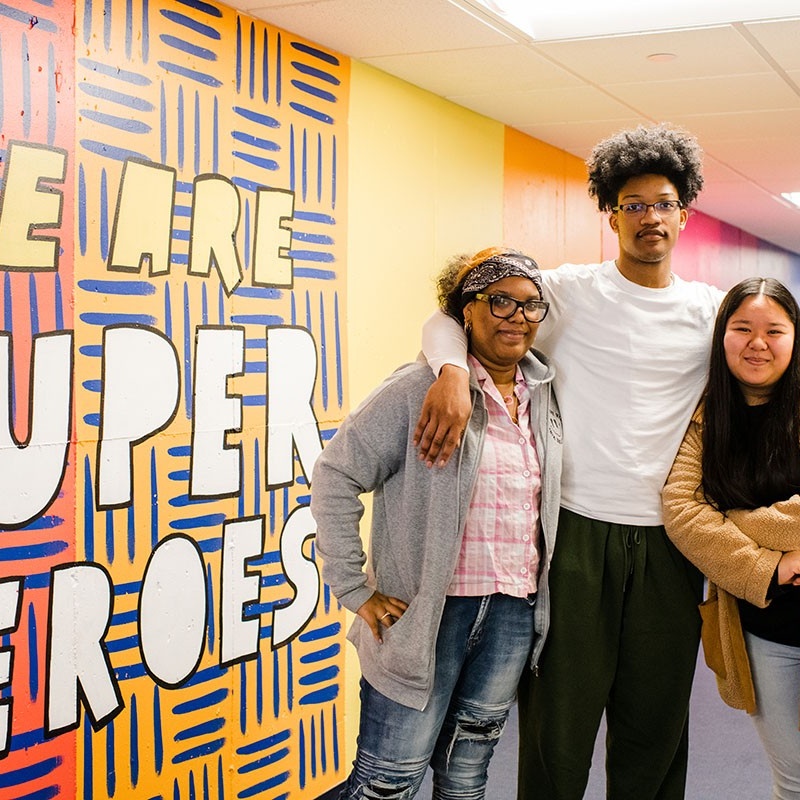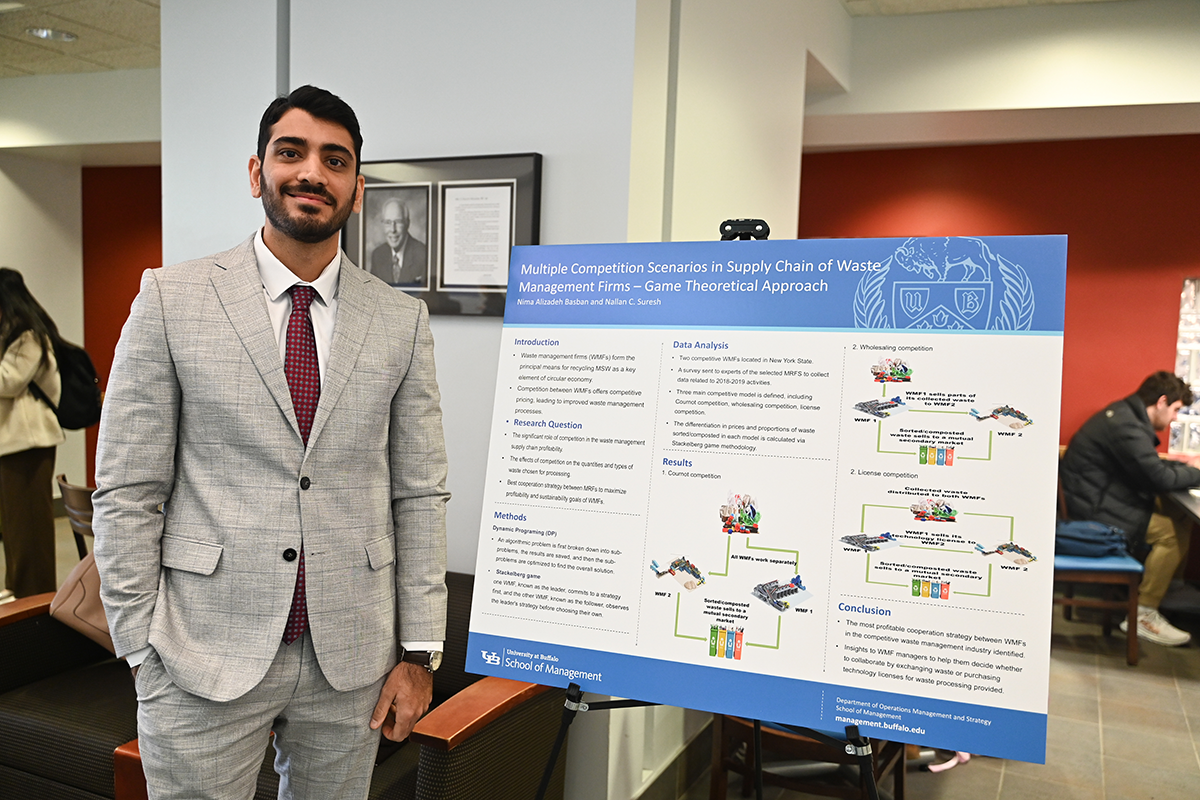Social Impact of Management
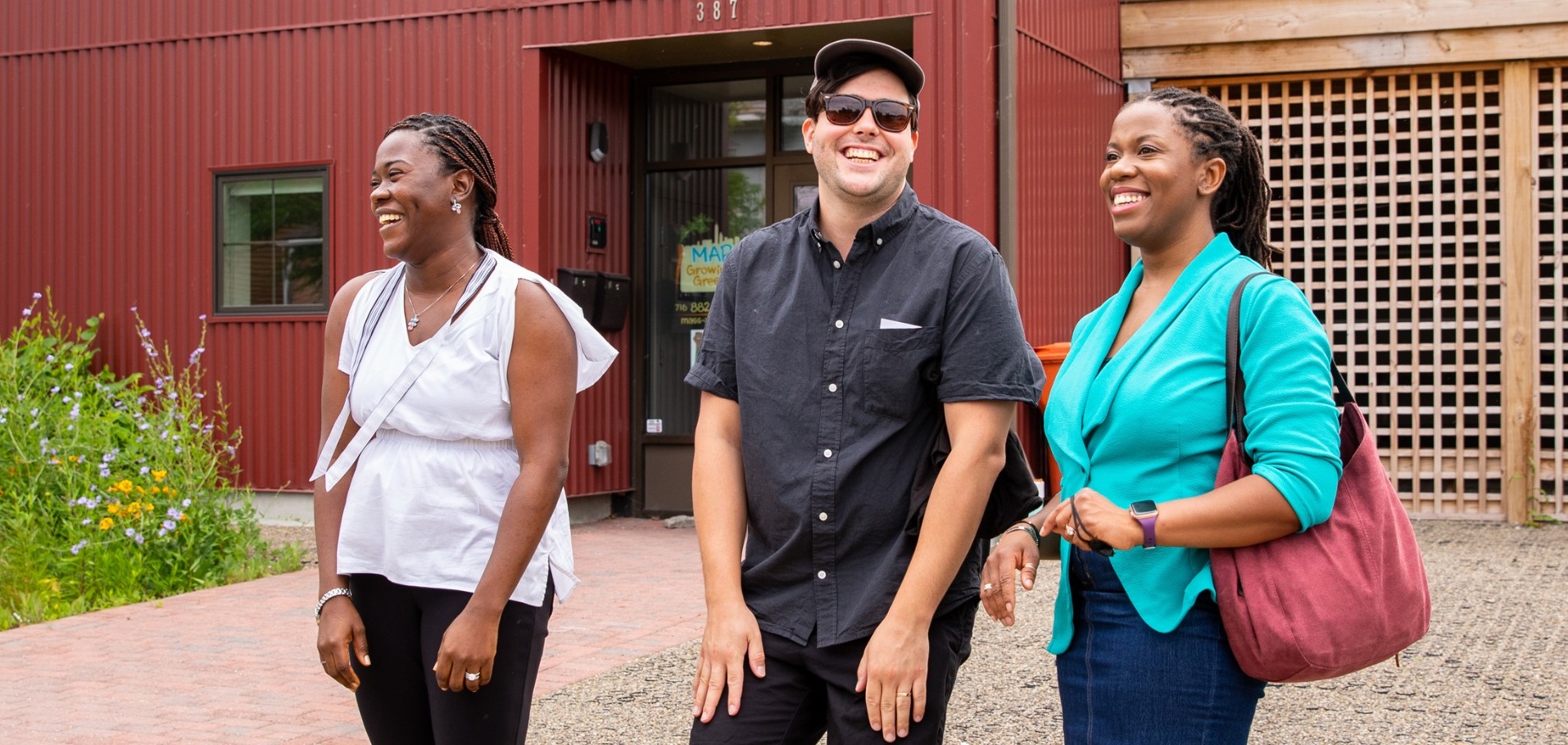
Social Impact Fellows at PUSH Buffalo.
Business can — and should — be a force for good.
Countless business leaders around the world agree: The days of corporations operating solely to maximize profit for their shareholders are behind us. Instead, organizations are prioritizing a slew of additional metrics alongside the bottom line, including their impact on employees, customers, communities and the planet.
Research
Our faculty conduct research that produces insights on some of the most pressing issues of our time, including poverty, food systems, access to quality health care, economic development and beyond.
Examples

In states where medical marijuana is legal, payments from opioid manufacturers to physicians have decreased significantly — suggesting that marijuana may be emerging as a viable alternative to opioids for pain management, according to new research from the UB School of Management.
The study examined the impact of medical marijuana legalization on the financial incentives that opioid manufacturers provide to physicians. These payments often include consulting fees, conference travel and other incentives — practices that pharmaceutical companies have faced criticism for using to influence medical decisions.
“The availability of new pain management options can change the financial dynamics between drug companies and health care providers,” says study co-author Wreetabrata Kar, assistant professor of marketing. “Our findings indicate that medical marijuana is increasingly viewed as a substitute for opioids in chronic pain treatment, with the potential to transform pain management practices and help mitigate the opioid crisis that has profoundly affected communities across the U.S.”

The beliefs someone holds and the environment where they live and work shape how much economic inequality people report seeing, according to new research from the UB School of Management.
Two studies — one in the Journal of Experimental Social Psychology and another in Nature Communications — reveal that individuals who believe in the fairness of socioeconomic institutions and those living or working in geographical areas where rich and poor are separated from each other perceive less economic inequality than those who question institutional fairness or are exposed to mixed-income spaces.
“Even when we expose people to identical levels of income inequality in controlled environments, their personal beliefs or the geographical separation between the rich and the poor consistently shape how much inequality people report seeing,” says Daniela Goya-Tocchetto, assistant professor of organization and human resources, who co-authored both studies.

When it comes to motivating app-based gig economy workers like DoorDash and Uber drivers, giving out money and virtual high fives are separately effective — but not when given together — according to new UB School of Management research.
Published in Management Science, the study found that both monetary and non-monetary incentives (such as digital badges for doing a good job) increase participation from gig economy workers when offered separately. But when offered at the same time, the effects of the monetary incentives are diminished, rather than enhanced by the non-monetary rewards.
“Combining verbal recognition with bonuses to motivate workers is an intuitive idea; but such combinations can be counter-productive in the gig economy,” says study co-author Ram Ramesh, professor of management science and systems. “Coming from the lower end of the earnings spectrum, gig workers feel shortchanged when a pat on the back is given instead of more financial rewards.”
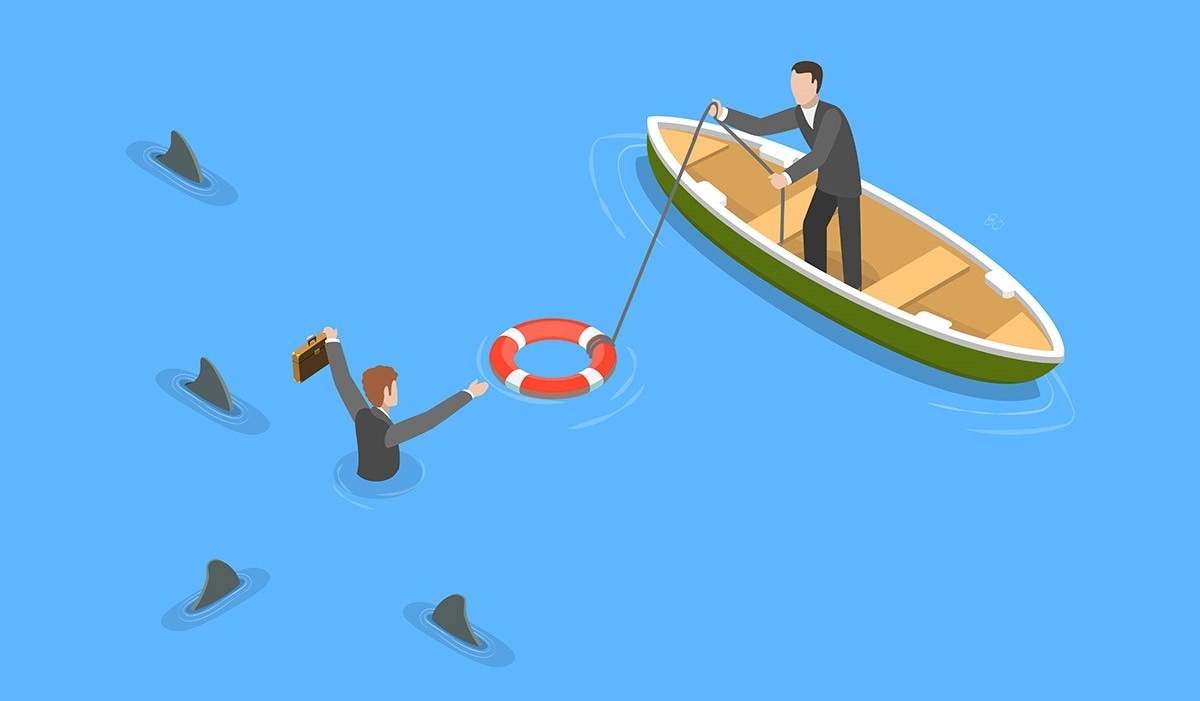
At an estimated cost of nearly $100 billion in taxpayer funds, bailouts have negatively affected the management and administration of multi-employer pension plans (MEPPs), according to research from the UB School of Management.
The study examines how MEPPs, collectively-bargained pension plans that provide retirement benefits for 11 million participants, respond to cash bailouts, particularly after the 2021 American Rescue Plan Act (ARP). When signed into law, this act established the Special Financial Assistance program, which provided cash infusions for certain MEPPs.
“We find that the pension bailout increased plans’ incentives to engage in risk-taking, opportunistic and self-serving behaviors.” says Michael Dambra, associate professor and Kenneth W. Colwell Chair of Accounting and Law.
Real-World Experiences
Through experiential learning opportunities, our students make a positive impact on our local and global communities.
Examples
Since 1989, Buffalo Prep has been an advocate for educational access and equity, offering programs to prepare academically driven scholars of color for success in college preparatory high schools and higher education.
As part of the organization’s 35th anniversary, leaders wanted a way to quantify and communicate the impact Buffalo Prep has had on its students by analyzing data related to the educational and career achievements of their alumni.
As a nonprofit with limited resources, Buffalo Prep needed help pulling all that data together. So O’Connor reached out to Dominic Sellitto, clinical assistant professor of management science and systems, for assistance.
Sellitto then connected O’Connor with a group of School of Management graduate students who organized data related to alumni positions, salaries, industries and more, and built a dashboard system that Buffalo Prep can use to analyze all that information and generate reports.
“What’s amazing is that we now have a tool we can continue to use as we move forward, adding in information as students graduate and as our alumni progress through their careers,” says O’Connor. “It wasn’t just a one-off kind of a project; it’s a tool that helps us explain the data.”

From a distance, social work and business can seem far apart, like incompatible “apples and oranges.” UB’s MBA/MSW students see things differently.
Jointly offered by the School of Management and School of Social Work, the MBA/MSW program helps students become change agents with competencies in leadership, teamwork, strategic thinking and communication. Graduates leave the dual degree program with the skills to manage service agencies, create new programs and provide social and economic value.
At Goodwill of Western New York, several recent grads illustrate the significant impact MBA/MSW alumni can make.
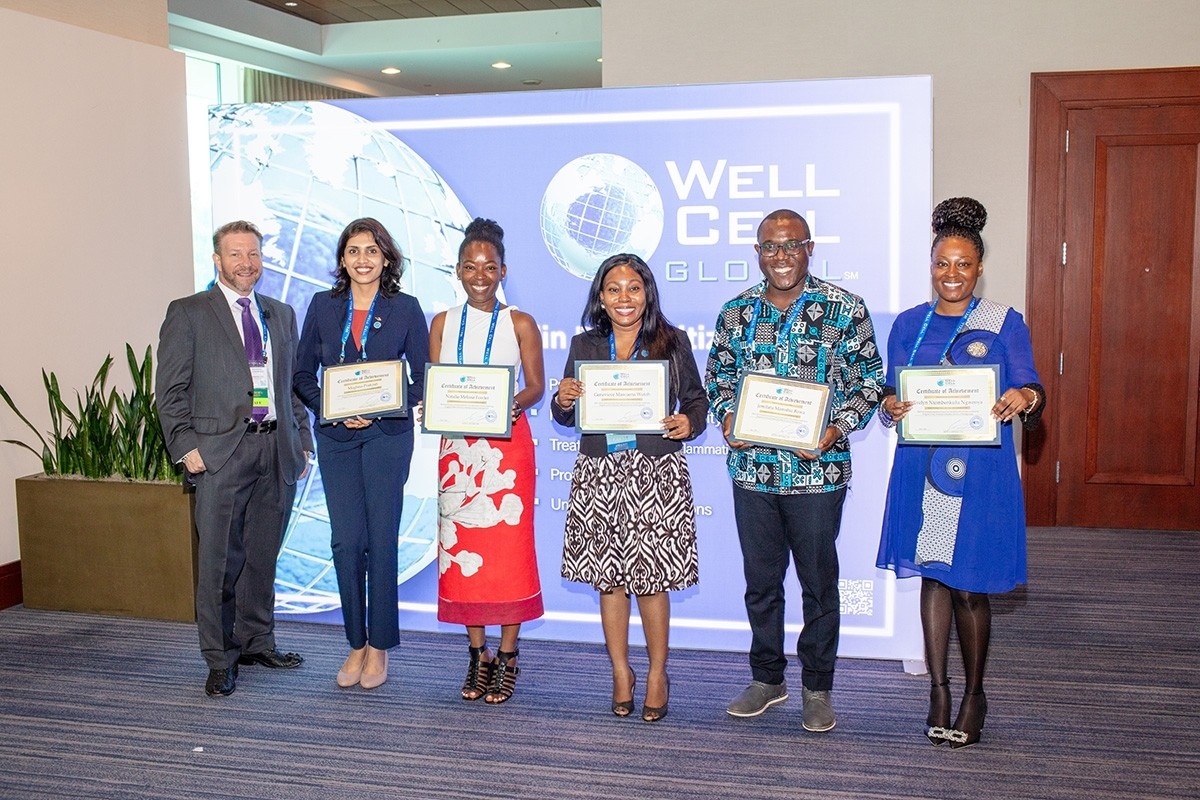
Sixty-five scholars from around the world collaborated on proposals to introduce a pharmaceutical product to their local markets as part of the UB School of Management’s Global Leadership program.
The project was a partnership with Well Cell Global, a Houston-based health care company that focuses on treating metabolic disorders, particularly diabetes, through a method they’ve developed that uses insulin as a hormone rather than a drug to address the root cause of metabolic failure.
During their two semesters in the Global Leadership program, participants were challenged to adopt a critical approach to course content and to recognize the opportunities available to encourage leadership in their networks locally and globally.
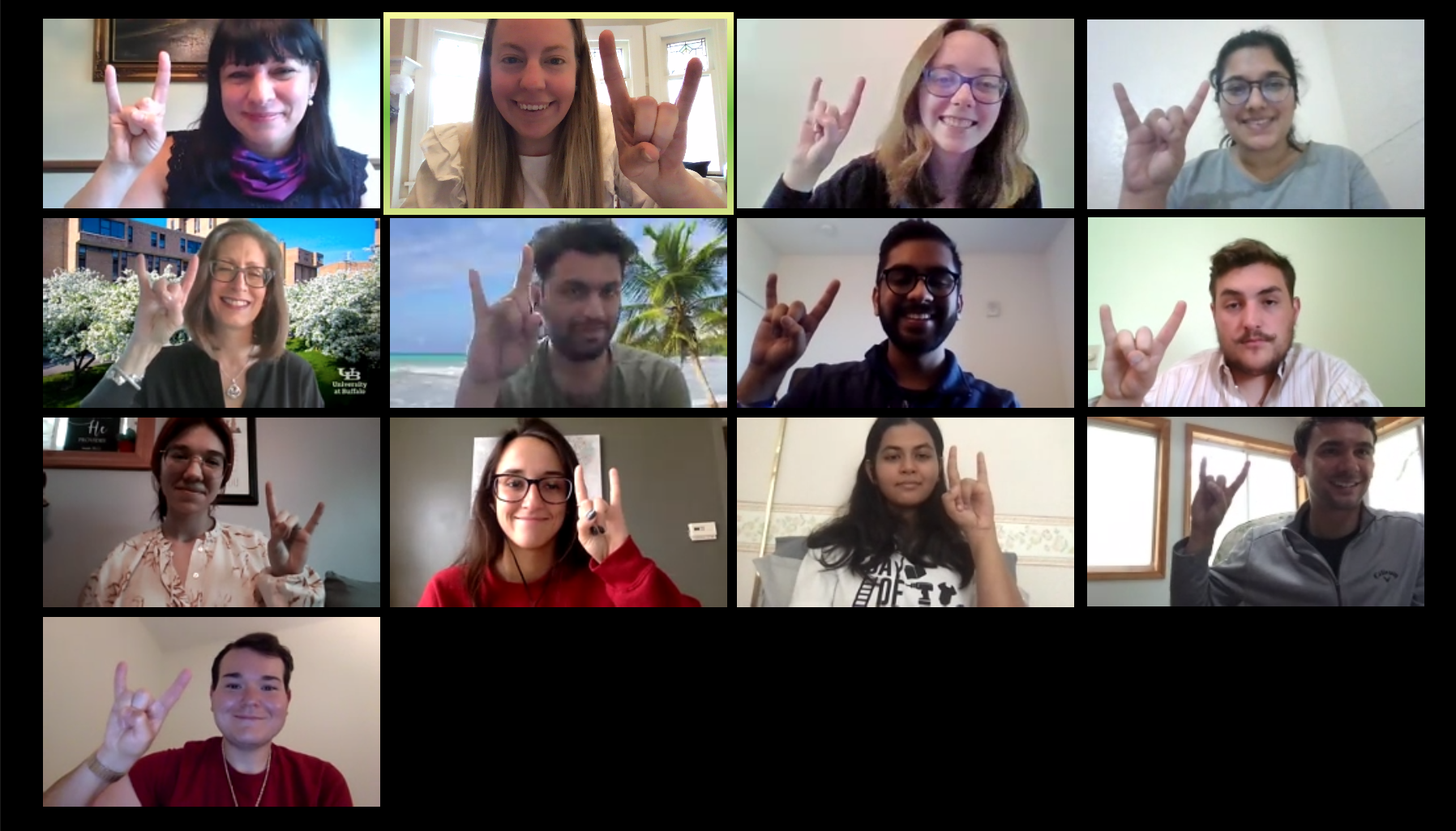
The Jordan A. Daniels Nonprofit Board Fellowship introduces MBA students to the intrinsic value of board service, connecting them with community organizations for leadership development and hands-on impact. The MBAs learn the concepts of board governance, servant leadership, and diversity and inclusion, while serving as non-voting board members with local nonprofits for an academic year.
Academic Programs and Teaching
With the team skills, global and diversity mindset, and strategic thinking our students develop during their coursework, they are poised, as alumni, to make a difference throughout their careers.
Examples
Our doctoral students hone their research skills and make discoveries that address problems that are important to business and society. Each year, that culture of innovation is on display for the entire university to see during the annual PhD Showcase.
This year, one student analyzed the challenges women face in leadership roles, while another presented on a hub-and-spoke model to recycle municipal solid waste in rural areas in New York State — and that’s only the beginning.
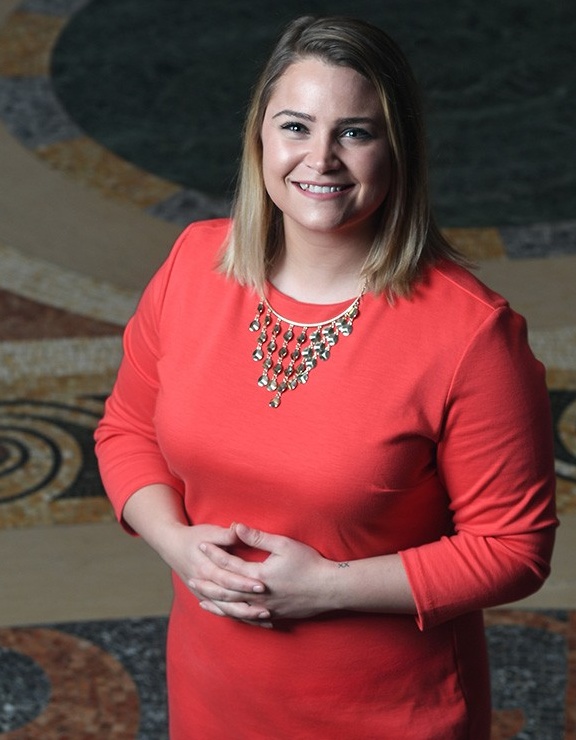
Through our array of dual and collaborative programs, UB MBA students master the business of their business. They complement their passion with a management degree, improve their marketability and gain skills that help them make a difference in fields like social work, law, pharmacy, medicine and public health.
"My mission is to create opportunity and drive economic development through real estate," says Lindsay Macaluso, MSRED/MBA ’18. “Above all, my dual degrees grant agility: I can deploy the technical skills and industry expertise gleaned from the real estate program alongside the strategic orientation and global mindset I cultivated in the MBA program.”
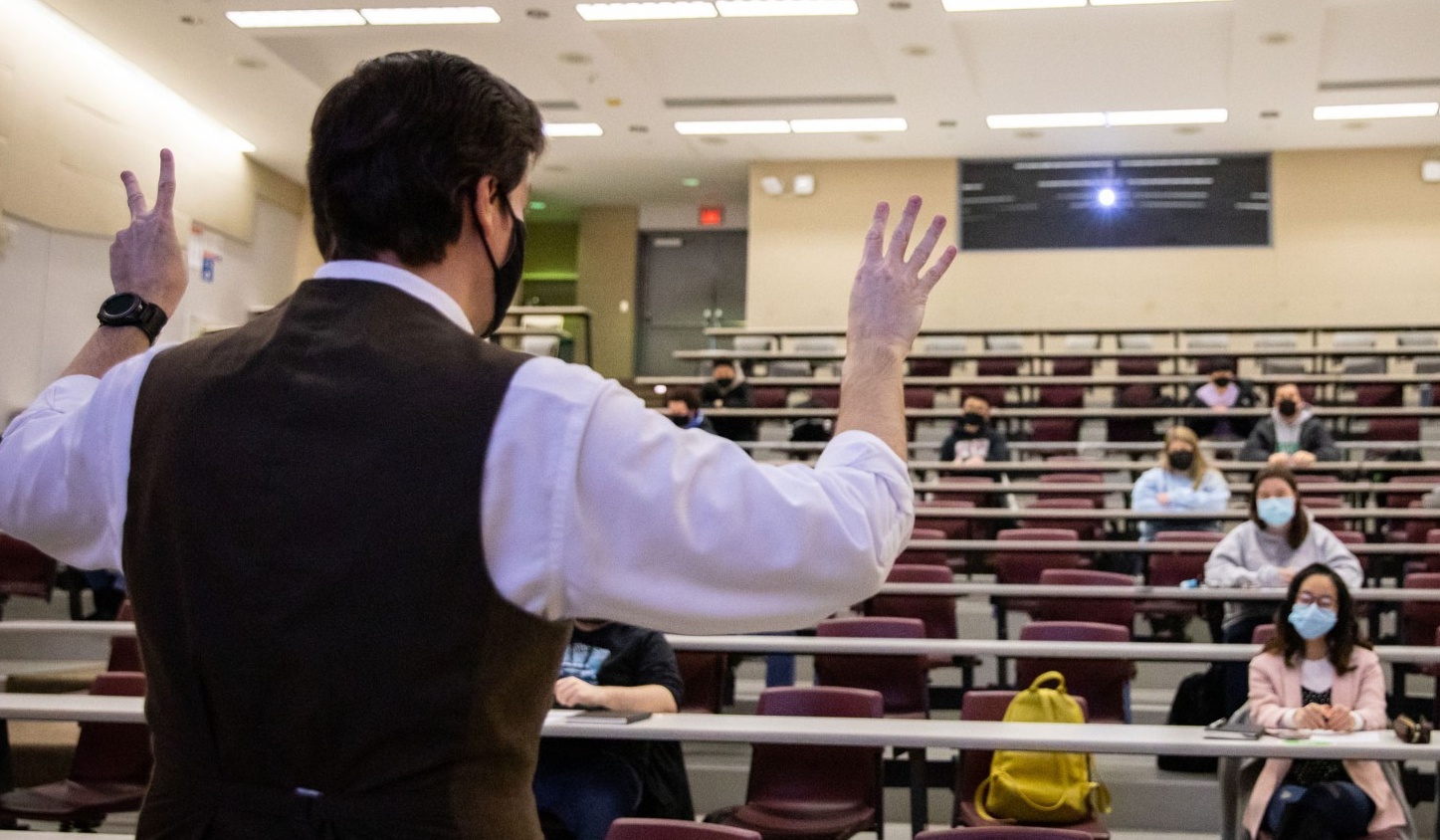
As part of our mission, the School of Management "produces principled and insightful leaders who create positive change in the world." Here, ethics are woven throughout the curriculum of every program.
In his business law class, Chris Nickson prompts discussion around situations where legal compliance may not, ethically, be enough. James Lemoine studies moral leadership and encourages his students to debate ethical issues and understand opposing perspectives. Even classes in finance, accounting, strategy and other areas wrestle with ethics and such topics as the gender pay gap.
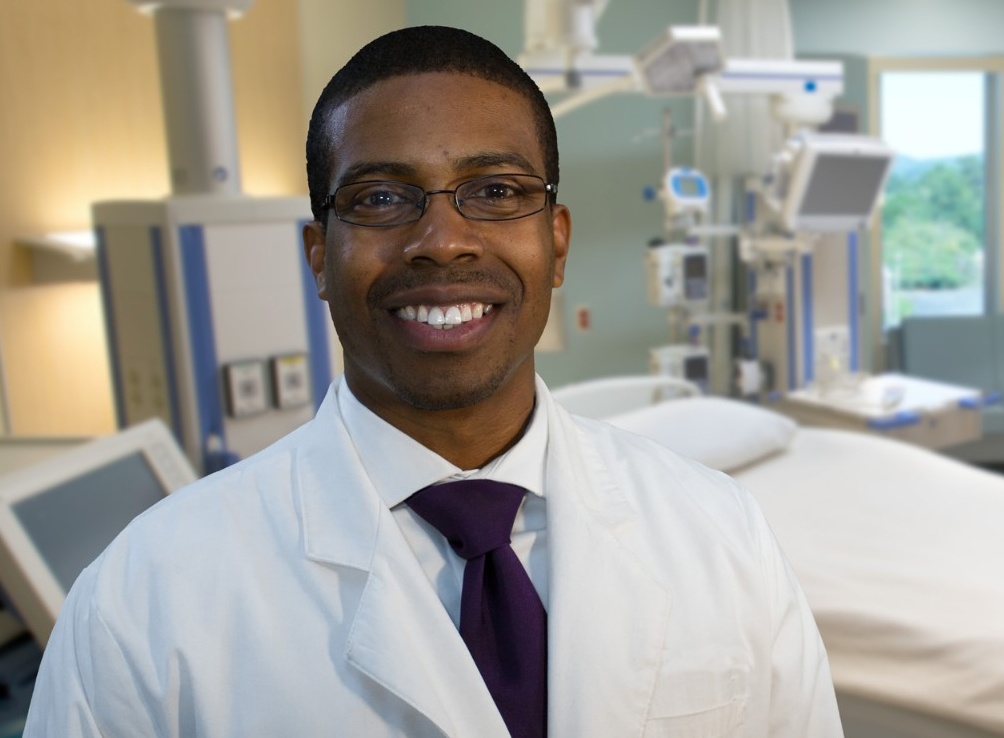
Concentrations allow our students to define their career goals and customize an academic program to achieve them. With a health care management concentration, UB MBAs can make a positive impact on an industry that profoundly affects us all. Through coursework and action learning opportunities, they learn how to tackle societal health care challenges using their management skills and become leaders in an increasingly complex system.
Partners in Progress
To make a lasting social impact, we partner with organizations across sectors.
Our partners include:
Speakers and Conferences
To spark conversation and inspire innovation, we bring thought leaders from around the world to campus for various conferences and events.
